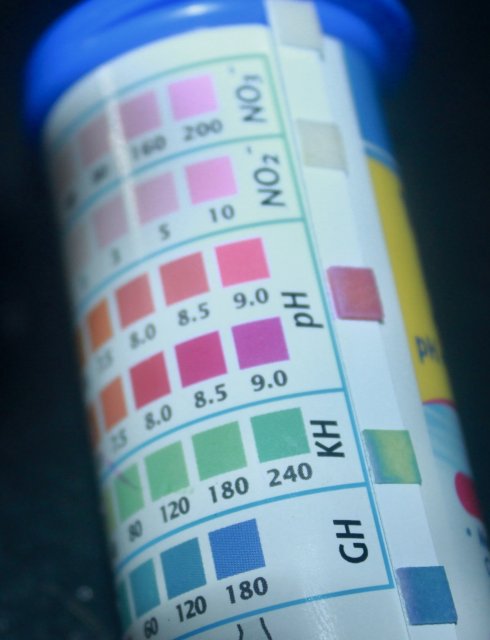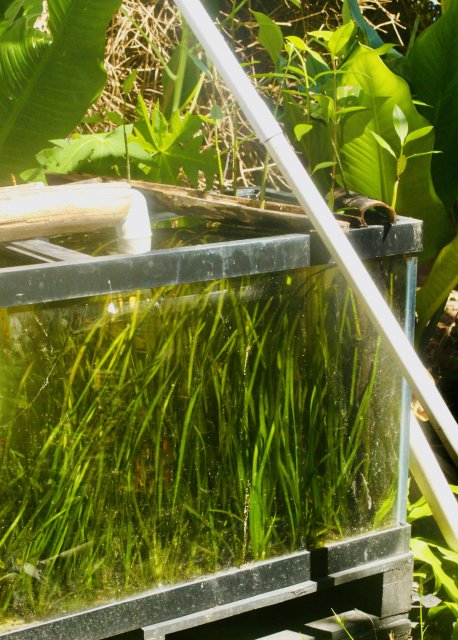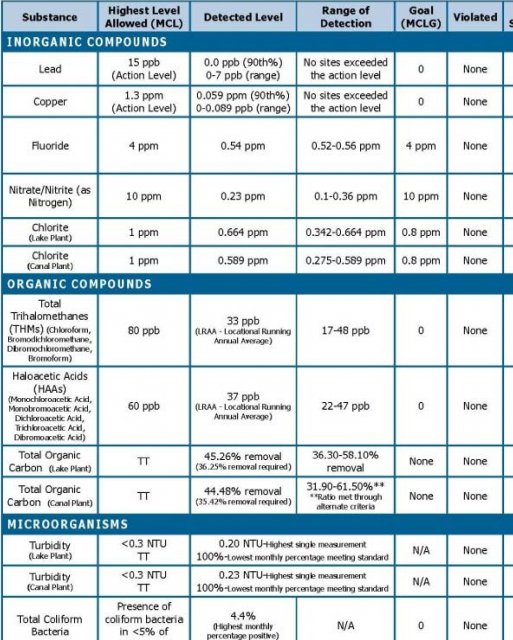I've been searching for an answer to this question for awhile and beens getting conflicting information.. I'm setting up a freshwater 220g with a 75g sump. I am wanting to set up a 55 gallon reservoir to use as both a ATO and AWC. I know RODI is highly recommended for SW, but is it as beneficial and necessary for freshwater? I'm not concerned about using live plants and wouldnt be against using artificial. The main things about a regular RO system that I like, is both the higher GPD rates and some systems have significantly lower waste ratios compared to RODI systems. My LFS keeps telling me I NEED a RODI system but they are more into SW and seem to forget every time I talk to them that I'm doing a freshwater tank, so their opinion isn't so convincing for me.
Do I need RO or RODI?
- Thread starter Night_Train
- Start date
It depends on the type fish you want to keep.....and the water parameters (components) of your tap water.
No one can give you an answer unless those factors are known.
An example using my water here in Panama
My water is hard
lots oof calcium
pH between 8 and 8.5
low in nitrate
The test strip results are to the right

I keep Panamanian cichlids no problem, in fact almost any Central American fish would do fine in my water, as would rift lake Africans.
However
If I wanted to keep Amazonian soft water species, like Cardinal tetras, wild caught Altum Angels, or the above mentioned species of Uaru, an RO unit to reduce mineral content would be advised.
I am a firm believe in keeping the fish that fit the type tap water available is a key to success in fish keeping.
I have always wanted to keep Uaru fernadensepizzee, but they require
soft, mineral free low pH (4-6) water.
To me subjecting any fish like that, to my tap water would be a ridiculous waste of time.
BTW, plants are the same, evolved to live in certain water types
The Val below is my currant sump, with hard water..
I have also had success with Cryptocorne, Java fern, and Anubias in hard mineral rich water

But again, not knowing your tap water parameters, and the fish you want to keep make answering your question impossible
No one can give you an answer unless those factors are known.
An example using my water here in Panama
My water is hard
lots oof calcium
pH between 8 and 8.5
low in nitrate
The test strip results are to the right

I keep Panamanian cichlids no problem, in fact almost any Central American fish would do fine in my water, as would rift lake Africans.
However
If I wanted to keep Amazonian soft water species, like Cardinal tetras, wild caught Altum Angels, or the above mentioned species of Uaru, an RO unit to reduce mineral content would be advised.
I am a firm believe in keeping the fish that fit the type tap water available is a key to success in fish keeping.
I have always wanted to keep Uaru fernadensepizzee, but they require
soft, mineral free low pH (4-6) water.
To me subjecting any fish like that, to my tap water would be a ridiculous waste of time.
BTW, plants are the same, evolved to live in certain water types
The Val below is my currant sump, with hard water..
I have also had success with Cryptocorne, Java fern, and Anubias in hard mineral rich water

But again, not knowing your tap water parameters, and the fish you want to keep make answering your question impossible
Last edited:
This was the last test results from the city tap water if this helps anyIt depends on the type fish you want to keep.....and the water parameters (components) of your tap water.
No one can give you an answer unless those factors are known.
An example using my water here in Panama
My water is hard
lots oof calcium
pH between 8 and 8.5
low in nitrate
The test strip results are to the right
View attachment 1485343
I keep Panamanian cichlids no problem, in fact almost any Central American fish would do fine in my water, as would rift lake Africans.
However
If I wanted to keep Amazonian soft water species, like Cardinal tetras, wild caught Altum Angels, or the above mentioned species of Uaru, an RO unit to reduce mineral content would be advised.
I am a firm believe in keeping the fish that fit the type tap water available is a key to success in fish keeping.
I have always wanted to keep Uaru fernadensepizzee, but they require
soft, mineral free low pH (4-6) water.
To me subjecting any fish like that, to my tap water would be a ridiculous waste of time.
BTW, plants are the same, evolved to live in certain water types
The Val below is my currant sump, with hard water..
I have also had success with Cryptocorne, Java fern, and Anubias in hard mineral rich water
View attachment 1485344
But again, not knowing your tap water parameters, and the fish you want to keep make answering your question impossible


Attachments
-
1.6 MB Views: 33
Last edited:
I am undecided on which fish I'm going to go with. It ranges from pygos, oscars, African tigers or possibly even American muskies
From what I see (in the 2nd column) you don't need an RO (RODI) because your water looks very good, but the only thing you will need, is to use a de-chloraminator when doing water changes to remove chlorine, and chloramiine.
But there are a couple parameters (factors) missing from the chart, to help judge what fish fit best in your water, and I'll bet if you call the water dept, they will give you that info.
I was a chemist/microbiologist at a drinking water plant, and took those calls from fish keepers regularly
The two you need are general Hardness and pH, although it would be just as easy to get a kit, or strips and do it yourself.
This is a skill all fish keepers should learn.
Oscars and pygos do best with neutral (6 to 7ish) slightly acidic pH and low to medium hardness.
And regularly testing for nitrates is often necessary until you get a fix on a best practice water change schedule .
Oscars are prone to chronic diseases like HITH in elevated nitrate waters, and especially so if the water is hard, and higher in pH (7.8 and above) so doing regular water changes to keep nitrate low is important (10ppm or less).
But there are a couple parameters (factors) missing from the chart, to help judge what fish fit best in your water, and I'll bet if you call the water dept, they will give you that info.
I was a chemist/microbiologist at a drinking water plant, and took those calls from fish keepers regularly
The two you need are general Hardness and pH, although it would be just as easy to get a kit, or strips and do it yourself.
This is a skill all fish keepers should learn.
Oscars and pygos do best with neutral (6 to 7ish) slightly acidic pH and low to medium hardness.
And regularly testing for nitrates is often necessary until you get a fix on a best practice water change schedule .
Oscars are prone to chronic diseases like HITH in elevated nitrate waters, and especially so if the water is hard, and higher in pH (7.8 and above) so doing regular water changes to keep nitrate low is important (10ppm or less).
Last edited:
Thank you very much for the information. As far as the chlorine and chloramiine, won't reverse osmosis remove them for me?From what I see (in the 2nd column) you don't need an RO (RODI) because your water looks very good, but the only thing you will need, is to use a de-chloraminator when doing water changes to remove chlorine, and chloramiine.
But there are a couple parameters (factors) missing from the chart, to help judge what fish fit best in your water, and I'll bet if you call the water dept, they will give you that info.
I was a chemist/microbiologist at a drinking water plant, and took those calls from fish keepers regularly
The two you need are general Hardness and pH, although it would be just as easy to get a kit, or strips and do it yourself.
This is a skill all fish keepers should learn.
Oscars and pygos do best with neutral (6 to 7ish) slightly acidic pH and low to medium hardness.
And regularly testing for nitrates is often necessary until you get a fix on a best practice water change schedule .
Oscars are prone to chronic diseases like HITH in elevated nitrate waters, and especially so if the water is hard, and higher in pH (7.8 and above) so doing regular water changes to keep nitrate low is important (10ppm or less).
Sure it will (I'm assuming you also have a carbon block), but you will have to add minerals back into water. That's more work and money than just simply adding in water conditioner.Thank you very much for the information. As far as the chlorine and chloramiine, won't reverse osmosis remove them for me?
I'm am very "green" on RO systems. Not much knowledge if any.. but I thought adding minerals back to the water was if you were run an DI system?. And with RO it was more monitoring your Ph. Im not trying to be doubtful, just really trying to understand and absorb all this informationSure it will (I'm assuming you also have a carbon block), but you will have to add minerals back into water. That's more work and money than just simply adding in water conditioner.
Keep it simple. All you need (right now) is water conditioner to deal with the chlorine/chloramine and a liquid water freshwater test kit like the API freshwater test kit.I'm am very "green" on RO systems. Not much knowledge if any.. but I thought adding minerals back to the water was if you were run an DI system?. And with RO it was more monitoring your Ph. Im not trying to be doubtful, just really trying to understand and absorb all this information
Thank youKeep it simple. All you need (right now) is water conditioner to deal with the chlorine/chloramine and a liquid water freshwater test kit like the API freshwater test kit.










